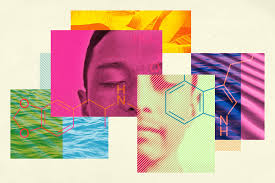Podcast: Play in new window | Download (Duration: 1:02:15 — 42.7MB)
Subscribe: Apple Podcasts | Spotify | Amazon Music
Attachment Through the Lifespan –
Leading attachment researcher Dr. Alan Sroufe shares the summary of his (and his team in Minnesota) decades of research looking at attachment though life. They followed individuals from birth through infancy and toddlerhood, to school age, adolescence, early adulthood and now parenthood. This is important because it helps us understand the essence of what attachment is measuring, and how to cultivate security no matter what age you are or what background you come from. Dr. Sroufe is an internationally recognized expert on early attachment relationships, emotional development, and developmental psychopathology and has published seven books and 140 articles on these and related topics!
—-
Attachment through the lifespan – learn the science behind the longest study ever conducted on attachment
Dr. Alan Sroufe's new book summarizes decades of attachment research – A Compelling Idea, How We Become the Person's We Are (2020). It's part memoire, part history of attachment science – and it's great for our audience because it brings the findings of this ground-breaking longitudinal research on how we become ourselves in one succinct place.
The Minnesota Longitudinal Study of Risk and Adaptation began in the early 1970s, initiated by Byron Egeland as a study of a large cohort of mothers living in poverty. In the 1970s and early 1980s, empirical attachment research had been primarily pursued by Ainsworth and her students. The research group led by Alan Sroufe and Egeland was important in providing a second pillar to hold up the paradigm from the 1970s to the present. The Strange Situation was conducted with the sample by Sroufe and his graduate students Everett Waters and Brian Vaughn. Early work by the research group documented the role of caregiving in shaping patterns of attachment in the Strange Situation, and also the capacity of infant attachment patterns to predict later social competence and mental health. Sroufe and Egeland created an ‘electric atmosphere’ in their research group, as they provided the first longitudinal evidence of the implications of attachment relationships.1 Students described their ‘imperturbable optimism’, ‘wisdom about human nature’, and ‘compassion’ as important qualities in the creation of the atmosphere, along with the sense of contributing to meaningful and cutting-edge developmental science.2 They were a great stabilizing and integrative presence for the field of attachment research. Though Egeland and Sroufe have now retired, research with the Minnesota Longitudinal Study of Risk and Adaptation has continued.
Other episodes you may enjoy: Ep 117 with Dr. Bruce Perry discussing trauma and resilience
Co-host Sue Marriott LCSW, CGP and Dr. Sroufe discuss his reflections – both personal and professional. It is rare to get to sit at the hearth with such an important contributor to the field but you get just that – we encourage you to get the book, sit back and listen to the podcast and learn from the very source.
Dr. Sroufe is Professor Emeritus of Child Psychology in the Institute of Child Development at the University of Minnesota and he has been an Associate Editor of Developmental Psychology and Development and Psychopathology. His awards include the Distinguished Scientific Contribution Award from the Society for Research in Child Development, the Bowlby Ainsworth Award for Contributions to Attachment Research, the G. Stanley Hall Award for Distinguished Scientific Contribution to Developmental Psychology from Division 7 of the American Psychology Association, an Honorary Doctorate Degree from the University of Leiden, and the Distinguished Teaching Award from the College of Education, University of Minnesota.
Conversation includes:
Guiding question behind Sroufe’s ongoing 1974 study
Why is change difficult? Negative expectations can result in off-putting behavior
Chronic early stress and early predictors
Positive relationships with teachers reported for those with secure attachment backgrounds
The importance of a supportive relationship as a predictor
Those with secure history who experience bad times don’t lose their secure history
“Earned” secure attachment and its neurological intricacies
Importance of being able to turn to someone, giving and receiving support, legacies of attachment
Resources:
A Compelling Idea, How We Become the Person's We Are (2020) by Alan Sroufe
by Dr. Alan Sroufe et al.
Hey neuronerds wanting to know more – here is a great link to a PDF summarizing the study and is well worth the read –
Minnesota longitudinal study of risk and adaptation – chapter 4
Lessons from the Minnesota Longitudinal Study
Clinical Application of the Adult Attachment Interview Edited by H. Steele & M. Steele
Haven't gotten enough of attachment through the lifespan? We have you covered, please hear Sue Marriott's conversation with him from a few years ago – episode 56 click below.
TU56: How We Come to Define Ourselves – Attachment Research Over Decades with Guest Alan Sroufe













